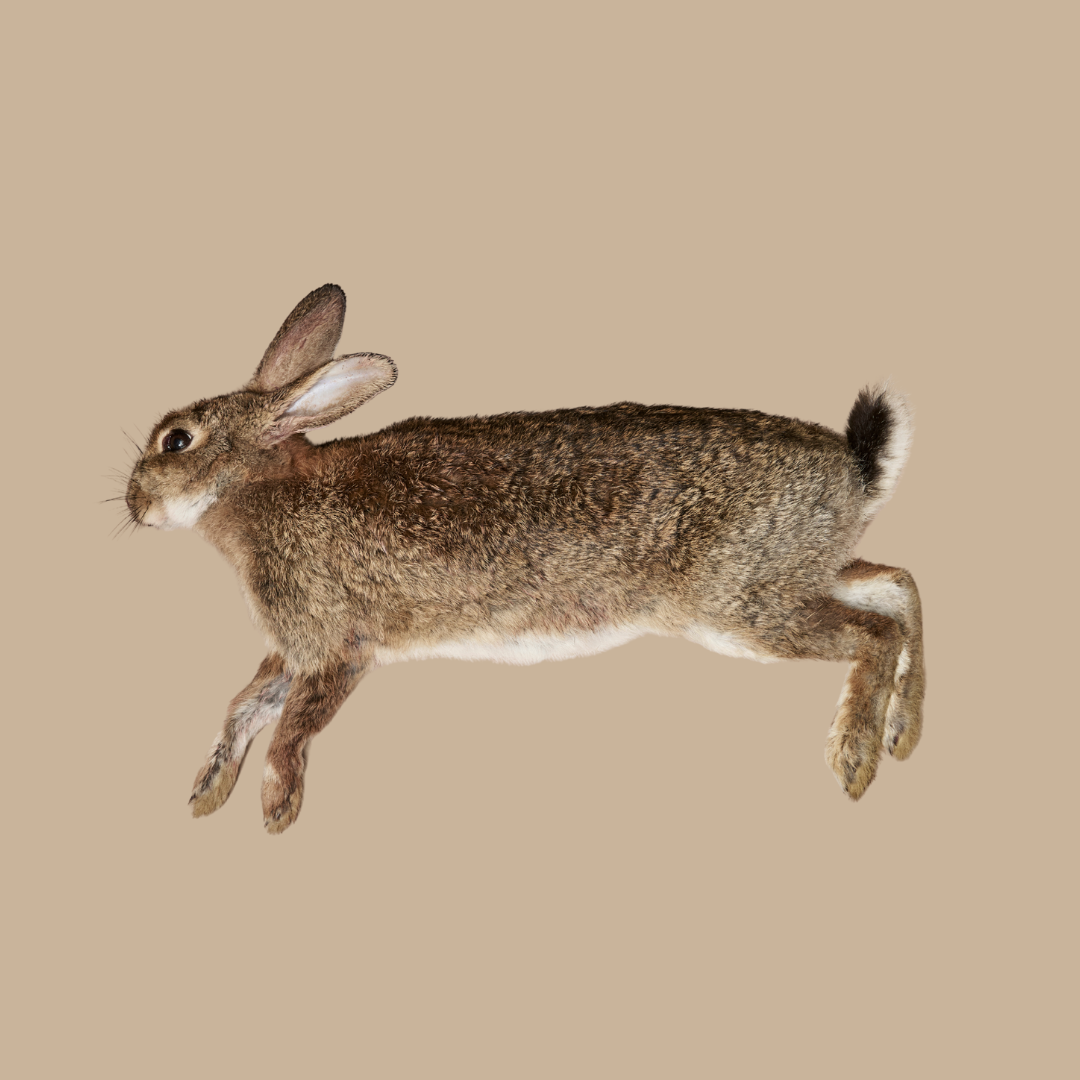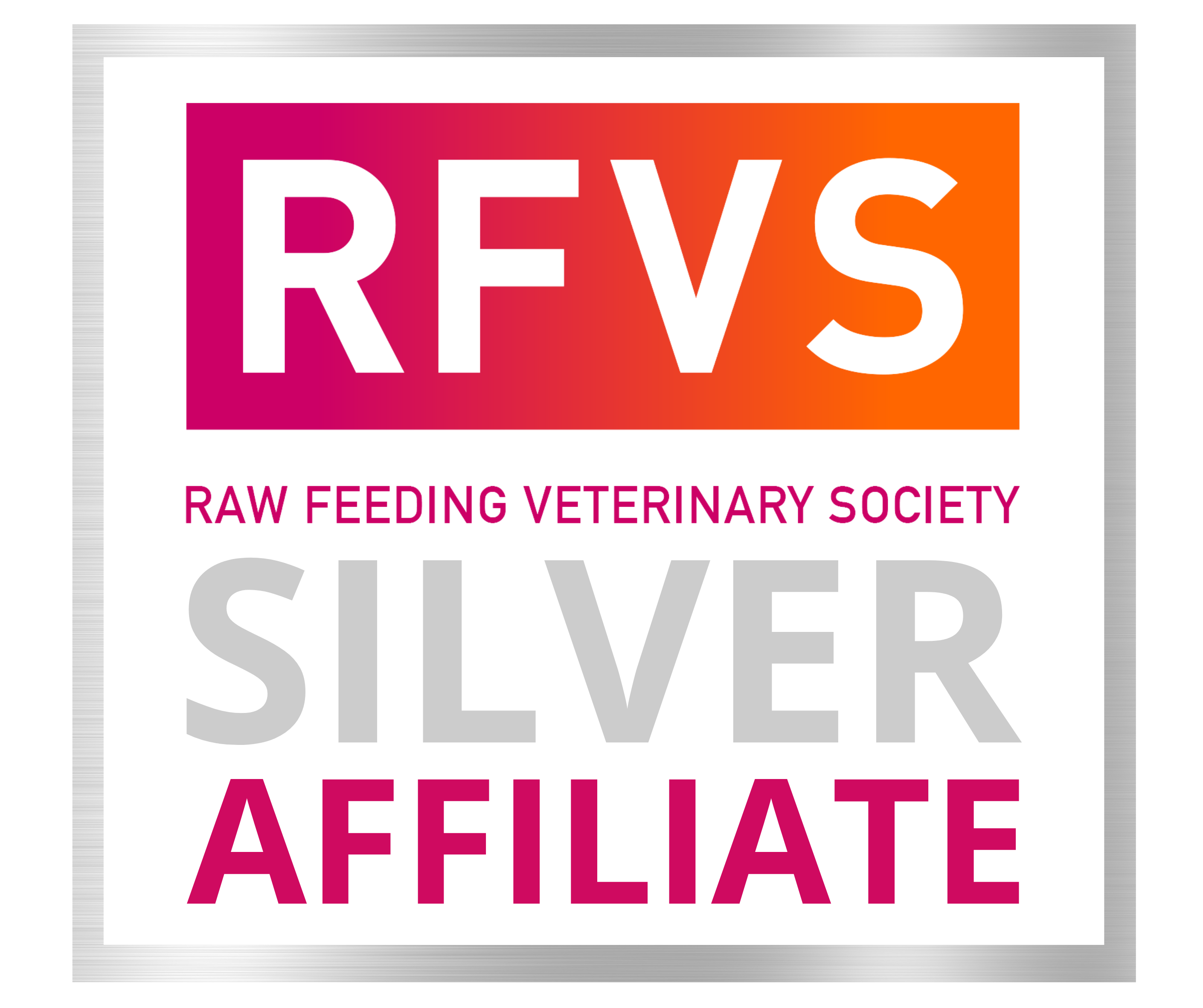Rabbit & Hare for Dogs & Cats

Why Rabbit & Hare Are Excellent Protein Options
Rabbit and hare are naturally lean, wild-sourced proteins that offer outstanding nutrition for both dogs and cats. Because these animals live on New Zealand’s diverse native flora, their meat is rich in essential nutrients that support overall health, particularly for pets with allergies, sensitive digestion, or those needing a novel protein option.
Nutrient-Rich and Highly Digestible
Wild rabbit and hare provide a range of valuable nutrients, including:
- Omega-3 fatty acids – help support healthy skin and reduce inflammation
- Niacin – vital for energy metabolism
- Selenium – a powerful antioxidant
- Phosphorus – essential for movement, bone strength, and cell health
Their naturally lean profile makes rabbit and hare ideal for pets who need a lower-fat diet or who benefit from high-quality, easily digestible protein.
A Species-Appropriate Choice
These proteins closely mimic the natural prey animals that cats and dogs would consume in the wild, offering balanced nutrition and satisfying their instinctive preference for fresh, unprocessed meat. Many pets, especially cats, love the taste and texture of rabbit and hare, making them an excellent option for variety and rotation feeding.
Rabbit & Hare as Novel Proteins
Rabbit and hare are two of the most effective novel protein options for pets with allergies, itchy skin, or sensitive digestion. A novel protein is simply a protein your pet hasn’t eaten before, which makes their immune system far less likely to react to it. For many dogs and cats who have previously eaten chicken, beef, or lamb, rabbit and hare provide a clean, gentle alternative.
Ideal for Pets with Allergies or Sensitivities
If your pet suffers from skin irritation, recurring ear infections, digestive upset, or food intolerances, switching to raw rabbit dog food or raw rabbit cat food can be a helpful way to identify triggers and reduce inflammation. Their naturally lean, highly digestible profile makes them suitable for elimination diets or long-term rotation feeding.
A Great Option for Resetting the Gut
Because wild rabbit and hare are minimally processed and free from common allergens, they’re often used to “reset” digestion. Paired with green tripe and a simple feeding plan, these proteins help calm the gut and provide a clean foundation for pets who need dietary support.
How to Feed Rabbit & Hare to Dogs and Cats
Rabbit and hare are versatile, nutrient-rich proteins that can be fed in several forms, making them easy to include in your pet’s raw diet. Whether you’re feeding for variety, supporting sensitive digestion, or trialing a novel protein, these wild meats fit naturally into a balanced raw routine.
Serving Options
- Minces: A simple, highly digestible option for dogs and cats of all ages.
- Meaty pieces or chunks: Great for chewing, mental stimulation, and jaw strength.
- Whole-prey style cuts: Especially appealing for cats, who often enjoy the natural texture and scent.
How Often to Feed Rabbit & Hare
These proteins can be part of your pet’s regular rotation or used during elimination diets. Pair them with green tripe and a variety of other raw proteins to maintain balance.
Benefits for Dogs and Cats
- Dogs often do well on rabbit due to its lean profile and gentle digestibility.
- Cats instinctively love rabbits and hares, making them excellent options for fussy eaters or pets needing a moisture-rich, species-appropriate food.
Seasonality and Supply: Why Availability Can Vary
Because our rabbit, hare, and wallaby products are sourced from the wild, availability naturally shifts throughout the year. Weather, hunting conditions, and farming activity all influence when these proteins can be harvested safely, so occasional fluctuations are completely normal.
Seasonal Factors That Affect Sourcing
- Winter: Snow and cold conditions make access difficult, and animals spend more time in burrows.
- Spring: Breeding season means farmers often limit hunting to avoid disturbing newborn lambs.
- Summer: Typically the most reliable season, with better access and more consistent supply.
The Role of Accredited Hunters
Wild harvesting relies on highly skilled, MPI-accredited hunters who work to strict safety and ethical standards. It’s specialised, physically demanding work, and because there is a limited pool of trained professionals, availability of some proteins can vary throughout the year.
Our hare, rabbit and wallaby are wild-harvested on large South Island stations by MPI-accredited hunters. At times, we may also source rabbit from the North Island, however availability there is more limited.
Need Help Choosing the Right Rabbit or Hare Products?
Every pet is different, and we’re here to help you find the rabbit or hare options that best suit their needs. If you’d like personalised guidance on how much to feed, how often to rotate proteins, or which products to choose, our nutrition team is always happy to help. Tell us about your pet, and we’ll recommend the most suitable rabbit and hare options for their raw feeding journey.

